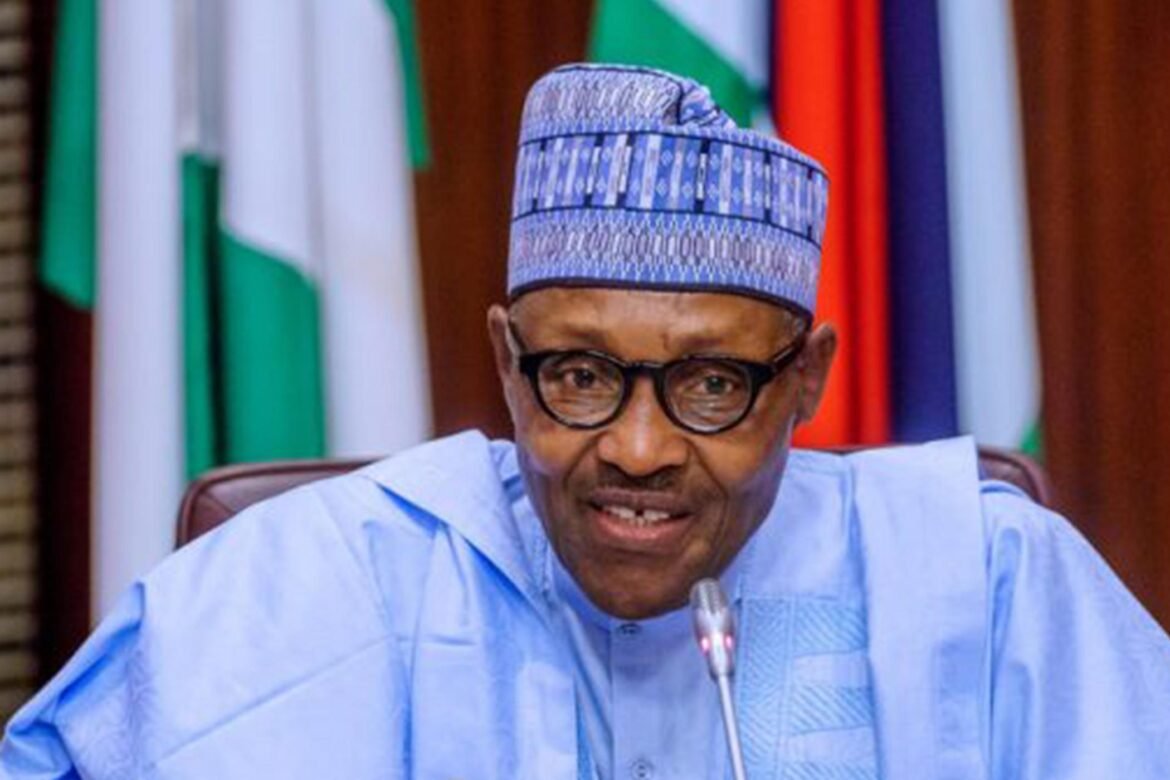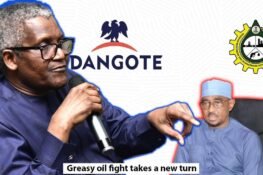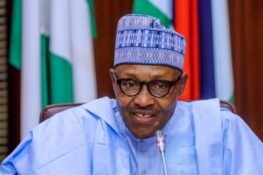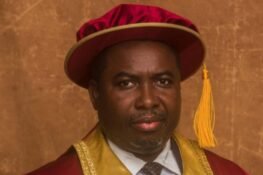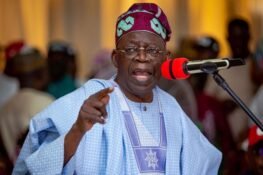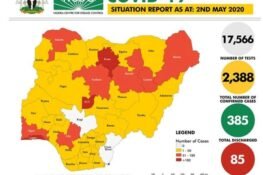In 1985, a deceptive military administration held power.
Its leader, General Ibrahim Babangida, took Nigeria through an economic excursion that delivered unbridled hardship, causing violent protests and other reactions that almost ended the life of Babangida and his regime.
The Structural Adjustment Program or SAP, as it was labelled, is still ingrained in my memory.
If you are old enough to remember, you may have a sense of what is within the horizon in 2020.
Dismiss what the official version may be, Nigeria’s economy is now on life support.
Officials have been giving the impression that Nigeria faces serious economic challenges but they have got this under control.
For reasons best known to them, the Buhari government refuses to paint a full and plain picture of an economy that has fallen apart and how they are struggling to fix it.
Ordinary Nigerians should be prepared.
Things are so bad, hardship will be dished per capita, touching every person, every home, every business, the young and the old
Things are so bad, hardship will be dished per capita, touching every person, every home, every business, the young and the old.
The recent hike in petroleum and electricity prices are the obvious and manifest evidence of fiscal troubles that run deeper.
This administration has been making mendacious claims that after COVID-19 struck, a cash crunch suddenly emerged, without revealing that the economy was already on an emergency bed prior to the pandemic.
Before COVID-19, the foundations of Nigeria’s economy had been shaky.
The problem was only exacerbated, not caused, by the virus.
Borrowing had been on the rise and every effort to prop up the currency had failed.
Gross Domestic Product had been trending downwards for years.
Oil prices have been low and Nigeria had not figured out how to live in a post-oil economy.
Every expectation that the Buhari administration would be prudent has been a shattering disappointment.
Wastage and corruption are still everywhere. But that is not the issue at hand right now.
It is the crumbling economy and the plans to steady it that must be examined.
The pill that Nigerians must be ready to swallow is far more bitter that the administration would have you believe.
The nation’s projected GDP for 2020, according to the International Monetary Fund (IMF), is minus 5.4 per cent, even worse than the administration’s projection of minus 4.4 per cent.
Consumer prices are expected to rise by more than 13 per cent.
Any way you look at it, things will get really bad. The economy has shrunk.
The financial data powerhouse, Bloomberg, reported in July that in seeking loans from international institutions, the IMF had required Nigeria to devalue its currency and unify the official and unofficial rates.
For reasons best known to them, the Buhari government refuses to paint a full and plain picture of an economy that has fallen apart and how they are struggling to fix it
Shortly after, there was a massive drop in the value of the naira.
That’s exactly what happened under Babangida’s SAP.
Bloomberg wrote: “President Muhammadu Buhari has insisted that a stable naira is the linchpin of his economic policy, but realities dictate that he and central bank Governor Godwin Emefiele likely had no choice but to comply with the IMF’s guidance. The country has been reeling all year from a dramatic slump in the price of oil, the source of almost all of its foreign exchange.”
Note there that the IMF didn’t necessarily agree that COVID-19 is the sole factor for Nigeria’s economic troubles.
Although the IMF’s and Buhari’s wizards are refusing to give whatever concoction is underway a brand name, perhaps owing to past experience, what is incontrovertible is that the economy has been turned over to foreign advisers.
That is why all of a sudden, we are seeing deregulation in petrol and electricity prices.
I believe in Western capitalism and have nothing against economic plans out of the Bretton Woods institutions, as long as they work and reduce the suffering of the regular Joe.
However, it is not acceptable for any government to blindfold its people when it accepts external prescriptions.
If such programmes fail, the rich and the politicians have a safety net.
However, for most Nigerians, a country teeming with poor people, the effect would be disastrous.
That is why the Buhari government must come clean and fully disclose to Nigerians what they are doing and where we are going with the economy.
The administration is seductively selling this programme as just the removal of the oil and electricity subsidy to shore up revenue and correct past problems.
At a public event recently, President Muhammadu Buhari remarked, “Subsidy removal in these sectors had long been foreseen by successive administrations as game changers in search of solutions to move forward with the nation’s development.
These are reforms that are necessary and overdue.”
Although the IMF’s and Buhari’s wizards are refusing to give whatever concoction is underway a brand name, perhaps owing to past experience, what is incontrovertible is that the economy has been turned over to foreign advisers
He then rebuked the media and the opposition.
Regardless of the merit of the economic plan, the President cannot blame the media or the opposition for a programme that was dumped in the middle of the night without full disclosure.
I cannot stop comparing the current administration’s economic agenda to Babangida’s SAP.
They are so similar. But even as bad as Babangida’s SAP was, he gave Nigerians time to discus and be informed.
SAP was the beginning of the devaluation of the naira, which caused a tremor in the land.
Currency devaluation under Buhari has quietly taken place while Nigerians were sleeping.
The Central Bank, persistently struggling to stabilise the currency exchange rate, started devaluing the Naira gradually since March.
As external reserves dipped below $30bn and rates peaked above N400 to one US dollar, the administration began to seek foreign help.
Publicly available information from the IMF’s website states that Nigeria’s problems started before COVID-19 registered.
Although the Executive Board of the International Monetary Fund (IMF) approved Nigeria’s request for emergency financial assistance of US$ 3.4bn under the Rapid Financing Instrument (RFI) to meet the urgent balance of payment needs stemming from COVID-19, the IMF also remarked that Nigeria’s problems were longer and deeper.
“Even before the COVID-19 outbreak, Nigeria’s economy was facing headwinds from rising external vulnerabilities and falling per capita GDP levels. The pandemic—along with the sharp fall in oil prices—has magnified the vulnerabilities, leading to a historic decline in growth and large financing needs,” the IMF stated.
Why has Mr. Buhari failed to give full details?
Being economical with the truth is not a good way to seek the support of all Nigerians.
This is the truth: Nigeria’s economy is now under foreign management.
In giving the loan, the IMF said it would remain “closely engaged with the Nigerian authorities and stands ready to provide policy advice.”
Those are code words for intervention.
The Sunday Tribune did an illustrative story about what is about to hit Nigerians, warning that the World Bank and the IMF are about to take over Nigeria’s economy.
Sunday Tribune revealed that the new IMF loans could “be a signal to the beginning of more unbearable pains in the form of economic policies as the Federal Government continues to implement the stringent conditions of its international creditors.”
Currency devaluation under Buhari has quietly taken place while Nigerians were sleeping
The newspaper disclosed further that the IMF approved Nigeria’s request for emergency financial assistance in April with “the Federal Government irreversibly committing itself to full removal of electricity subsidy by 2021, removal of petroleum subsidy as well as the further increase of value-added tax (VAT).”
Nigerians were suddenly slapped with petrol and electricity price increases early in September, with up to 150 per cent increase in electricity prices.
Even the IMF loan and its conditions are not the whole story.
Apart from the IMF facility, Nigerian has also borrowed $288m from African Development Bank, while it seeks further assistance from the Islamic Development Bank.
Another request for $2.5bn loan from the World Bank was declined, on the grounds that Nigeria lacks the capacity to use a loan wisely.
The World Bank president, David Malpass, said Nigeria was unqualified for concessional loans because of heavy indebtedness and wastage.
The administration may say anything it wants, but Nigeria’s economy is still not well managed.
Government officials, including those close to the President and his family still spend foreign currency on foreign medical travel, when ordinary Nigerians are being told to suffer.
Opulence is still on display in a time of hardship.
Government officials have not shown by example that we live in tougher times.
Nigerians have suffered long enough.
Although it is hardly possible for them to escape further hardship, if the load is not balanced between the haves and have-nots, the government must expect a pushback.
While it is true that the economy cannot be sustained without some belt tightening, heaping the entire load on ordinary Nigerians can lead to an outcome that the administration will not wish to have as its legacy.
Aso Rock has never needed to display commitment, transparency and leadership more than now.
